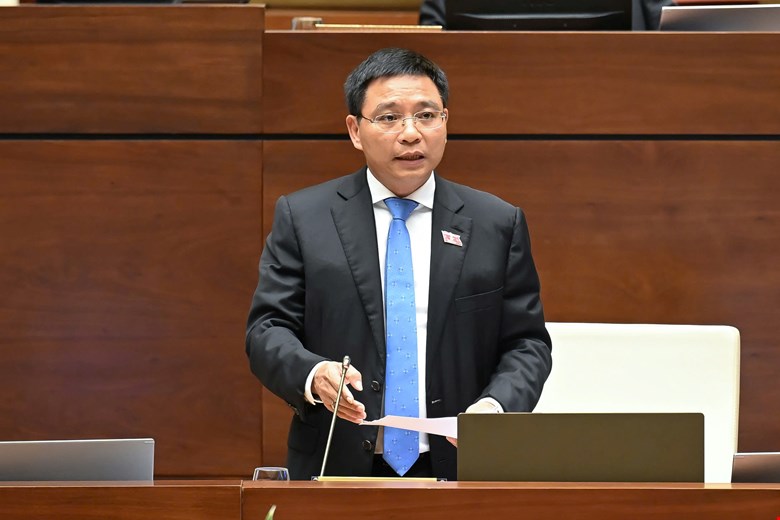On the afternoon of June 11, the National Assembly discussed in the hall the draft Resolution of the National Assembly on exemption of agricultural land use tax.
Delegate Thach Phuoc Binh (Tra Vinh delegation) said that in the context of agriculture still being the main production sector, ensuring livelihoods for more than 60% of the population, it is extremely necessary to continue to have preferential policies and practical support for the people.
The delegate said that in reality, the policy of tax exemption for agricultural land use has had many positive effects over the past 2 decades. According to data by 2023, the whole country has had more than 10 million households benefiting from this policy with a tax exemption area of up to 10 million hectares, more than 7,000 - 8,000 billion VND/year.
In return, the value of agricultural output has increased, food security has stabilized, farmers' income has improved and new rural construction has been actively supported.
In addition to the remarkable results, the delegate also said that the current application of tax exemption policies is still widespread, with no clear classification between groups of subjects.
These include small-scale farming households, cooperatives, large enterprises and individuals who own land but do not directly produce or lease land, all are exempt from tax equally.
The delegate pointed out that this leads to unfairness, causes budget losses and is easily exploited. Therefore, it is necessary to layer policies such as completely exempting direct production for people, reducing or keeping the tax rate for organizations and individuals who do not actually produce or do not have effective farming activities.
The delegate said that the current tax exemption policy is not closely linked to effective land use conditions. Tax exemption must be accompanied by constraints such as not leaving land abandoned for more than 12 months, using it for the right purpose, having a clear contract if leasing, protecting the land and the environment.
These conditions are necessary to avoid the situation of "holding land waiting for time", non-productive land is still entitled to incentives that cause waste of national resources.
Another point is that the draft has not mentioned tax exemption policies associated with current agricultural production support programs. Tax policies should be considered part of the agricultural development ecosystem including preferential credit, technical training, crop insurance, etc.
When tax policies are restructured with other supports, people will have stronger motivation in investment and production, and land use efficiency will be improved.

Explaining the opinions of National Assembly deputies on subjects exempted from agricultural land use tax, Minister of Finance Nguyen Van Thang said that tax exemptions in the resolutions are appropriate.
In this draft resolution, the Government did not propose amendments related to subjects and scope of tax exemption and continued to inherit the subjects reviewed in previous resolutions.
The draft only has a new point: extending the tax exemption period to the end of 2030.
Regarding the impact assessment of the policy application period, the Minister of Finance said that the exemption of agricultural land use tax by the end of 2030 will not reduce revenue, because this is a policy that is being implemented in practice.
With the proposal to extend the agricultural land use tax exemption period to the end of 2030, the amount of agricultural land use tax exempted is about 7,500 billion VND/year.











